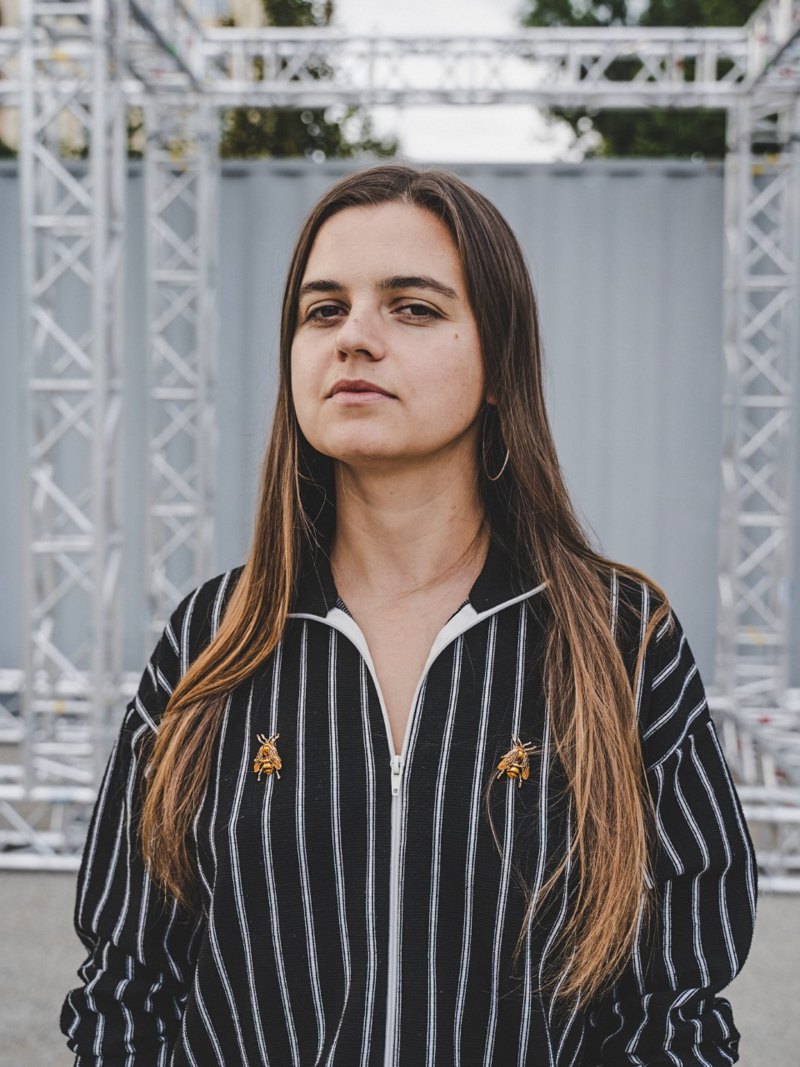
Olena Apchel
For many years, communicating with colleagues from the artistic "bubble" in different countries about the continuity of the emancipation of Ukrainians from the imperial influence of Russia, I encountered not so much disagreement or misunderstanding, but more some unspeakable longing and regret. Such an unnamed intellectual laziness. How is it possible: does this mean that now everything needs to be studied anew, to change the optics? To become, for a while, an ignoramus, to acknowledge and sincerely say "I don't know"? This is very frightening. I remember my fear from a decade ago when I had to learn very quickly externally, to make room within myself for tons of new information that needed to be processed. When you, with a master's degree, with a doctoral diploma in art history, suddenly feel the toxic convulsion of Russification and have to tear out almost all previous knowledge from yourself, remaining practically intellectually naked. When you have mechanisms, methodology, but lack facts and optics.
This is a very uncomfortable feeling. Yesterday you were an art historian, a literary scholar, a curator, a conductor, a writer, a historian, a cultural scientist with the highest rating, or a journalist or a renowned sociologist, and today you realize: everything you know is at least one-sided, at most – simply untrue. Imperialistic, myth-making, blatant lies. Post-imperialistic optics, decolonization optics suggest: listen, learn new things. But learning new things takes time. And you are no longer a student or a schoolgirl. And time is not a week and not a year. And the normal reaction of people with a scientific-artistic background is the reaction: "I won't!". And you decide not to worry too much. But this unpleasant little pebble is already in your sneaker. You go on, as you did, but the pebble distracts you, irritates you, doesn't let you forget about it. But intellectual laziness overcomes discomfort. And you get used to the news about daily deaths, about destruction, you stop paying attention to calls for help, you return to familiar rhythms and previous intellectual connections.
Recently, I had a conversation with an acquaintance who has been living in Germany for many years. She knows German well, is an intellectual, a translator, an art historian, and a writer. That is, a person deeply embedded (as much as it is possible, considering that German society does not particularly enjoy the deep embedding of representatives from other societies, although it does not even admit this to itself). So, we had a fairly candid conversation, and during it, a phrase emerged that was not a revelation for me and about which I often think as a concept for the future historical explanation of the reasons for the duration and bloodiness of this decade-long war. And this thought is probably the only meaning of continuing to write such texts further. German intellectuals do not trust Ukrainian intellectuals.
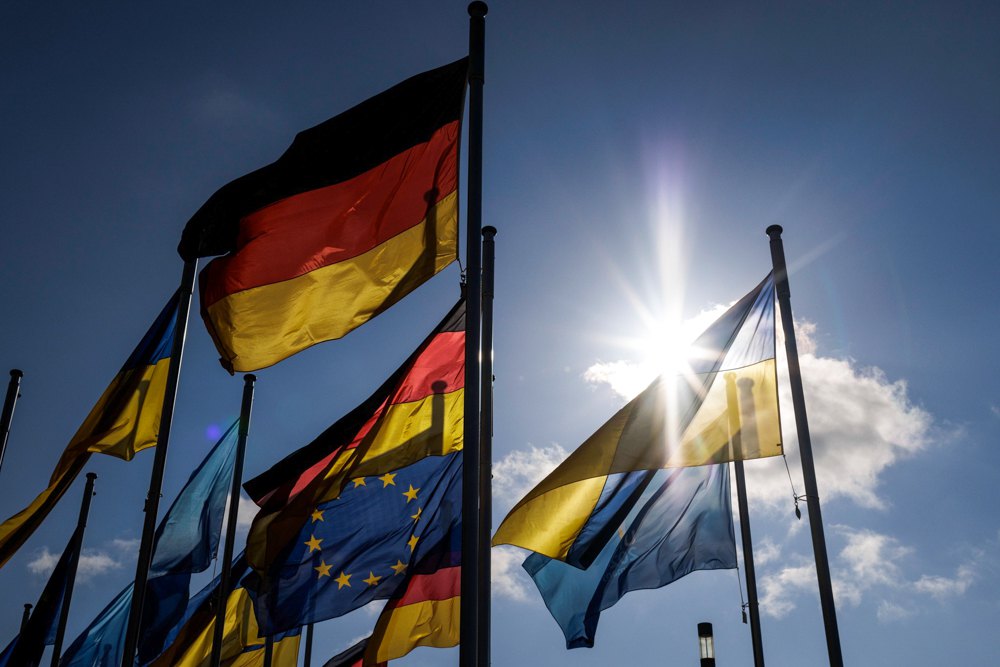
This lack of a view of equals is obviously based on an imperialist past, on harmonization with hidden chauvinistic gigantism (lost for the Germans and not lost for the Russians), on habits, on a long-established Eurocentric view, on a great fear of the repetition of world wars, on a great fear of the repetition of reparative measures, on the fear of deconstruction and a new loss of visibility of stability. And of course, subconsciously they resist granting the right to subjectivity to cultures that were colonized in the past. Almost all projects marked as international with the involvement of experts from around the world have mostly this involvement only at the level of demonstration. But what concerns the change of optics, proposals for new rules – is allowed only for their own.
This lack of conversation as equals is based on a deep-seated belief that societies and individuals who have experienced traumatic events (and we certainly are experiencing such events) cannot calmly, thoughtfully, and therefore subjectively analyze, describe reality, that it will always be a reality described from the position of pain, from the position of a victim. Obviously, I would like to call these primitive conclusions false, immature, to apologize for the accusation of hidden chauvinism and to retreat again into the corner of peripheral culture not of global scale, so as not to disturb the adult, developed, respectable cultures with my traumas. These sarcastic thoughts we also discussed in a conversation with that acquaintance of mine. And I basically noted that the closer you are to the front line, the more open the conversations become. And from anger and pain, you either save yourself with tears or with irony. But I wanted to show compassion.
I deeply sympathize with German and similar societies for the fact that their fear and their deep traumas of the previous century have paralyzed their ability to notice the positive opportunities of turbulent changes, and their love for stability has led to the atrophy of empathy.
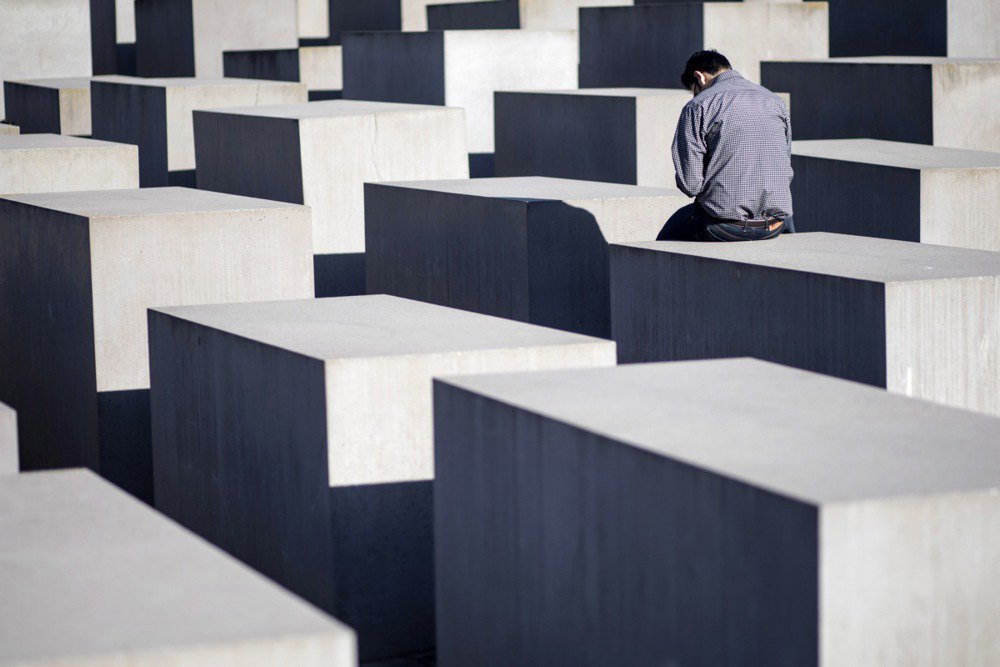
A man visits the Holocaust memorial in Berlin, April 7, 2018.
The conviction that a long-established picture of the world, explained by itself and for others, is the only possible one, that it is unshakeable, actually demonstrates the depth of the trauma of such a society. Everything that does not move – rusts, this dogma does not require long conversations. In a huge number of issues, German society is very active, listens, and itself creates new narratives, it is multi-layered and fleeting. But the question of Ukrainian culture, the self-sufficiency of its philosophical and art criticism thought has created an insurmountable cork for the Germans. Humanity is only now on the verge of realizing that the responsibility of old empires is to study the languages and cultures of the countries on the periphery. And not the other way around, when individual representatives of these peripheral countries, lacking political lobbying (which is usually present in empires), must independently try to shout out their narratives to those who will indulgently lend an ear for a few minutes. When an occupying genocide occurs, these solitary voices of despair and pain manifest a rebellious character. And this is considered uncivilized, so such voices quickly find themselves in a reservation.
Such a perspective means perceiving us as a rebellious teenage nation; but this is not true – the antiquity, depth, and multifacetedness of Ukrainian philosophical thought and state-building mechanisms prove the opposite.
Our statehood has constantly been silenced, systematically destroyed by famines, camps, executions, exiles, hard labor, and rapes. By the way, these methods were used by the Russians against all neighboring enslaved peoples, who are now referred to as the so-called "subjects of the federation." Their method is to intimidate, silence, and declare to the whole world that there are some small insignificant people creating an insignificant primitive culture that is not worth paying attention to. This is typical, well-known hierarchical chauvinism. We see it, we know why monuments to Pushkin have been erected in our cities and villages for centuries, why the scores of composers who refused to be "Soviet figures" were burned, why those who, like Gogol, accepted Russian identity and renounced their own had a chance not to be tortured, and even to become famous.
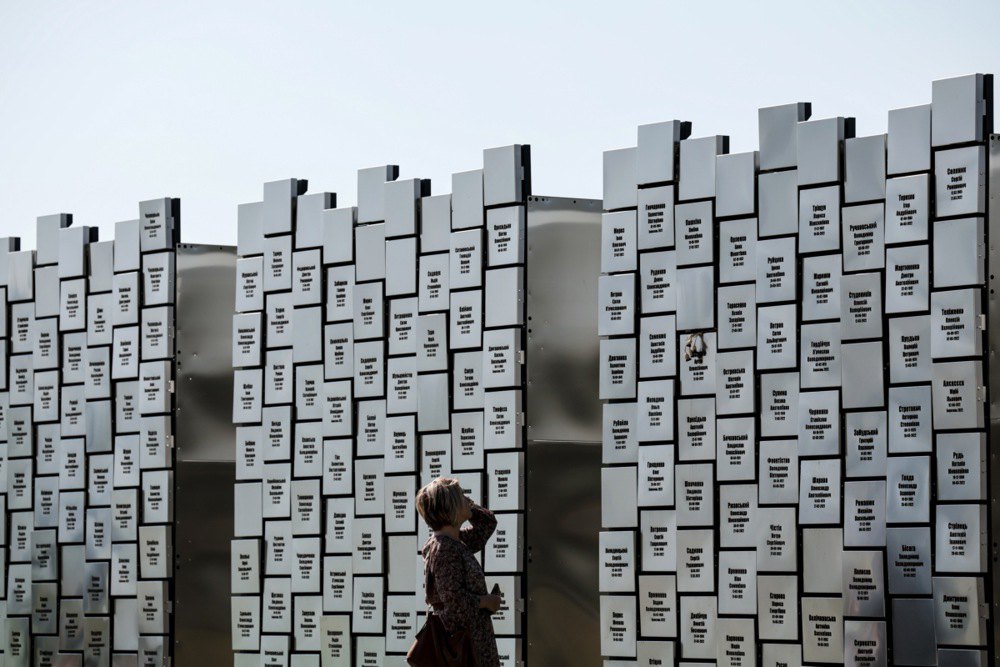
Memorial to the victims of military crimes in Bucha.
This is a good moment to remind once again that our struggle is based on worldview, political identity, not on ethnicity. Which, unfortunately, they are also lazy to study and understand in the West; there they simply fear, blur the word "nation," based on the trauma of their own experience. The Russians now, waging a genocidal war, are destroying us precisely for our political national identity: our literature, museums, galleries, language, state symbols. First of all, in the occupied territories, they kill our poets and teachers, regardless of their ethnic origin. We, on one hand, defend ourselves from an enemy dozens of times stronger, cunning, and treacherous, and on the other hand, we must constantly justify ourselves here in Europe. We must, like in elementary school, tell the story of the 20th century with a map in hand – a subjective one, not distorted by Moscow propaganda. We must once again explain that our political nationalism is simultaneously a bit Ukrainian, a bit Crimean Tatar, a bit Romani, a bit Greek, a bit Jewish, a bit Karaim, a bit Georgian, a bit Polish, a bit Crimean, a bit Armenian, a bit Gagauz, a bit Bulgarian, a bit Moldovan, a bit Lithuanian, a bit Chechen, a bit Azerbaijani, a bit Vietnamese. It has as its foundation the flexible self-determination of a conscious civil society and a brave volunteer movement, not ethnic origin.
I write this, and at the same time I ask myself the question: why write a text, knowing in advance that its reading will be an act of hierarchical condescension? Such a decent-worthy listening to the "victim" at a level where healthy non-toxic societies learn to respect the needs of children, to listen to their requests for self-expression, but subconsciously understand that this is not a conversation between equals. While working in Germany, I often felt a similar boring condescension from my interlocutors. Wide-open eyes, demonstration of attentiveness, allocated time and listening: normalized, dry, intellectual listening without truly hearing and empathizing, without a trace. They listened because it is a manifestation of good manners, a demonstration of upbringing, modernity, behind which stands a completely irrelevant reaction to real reality.
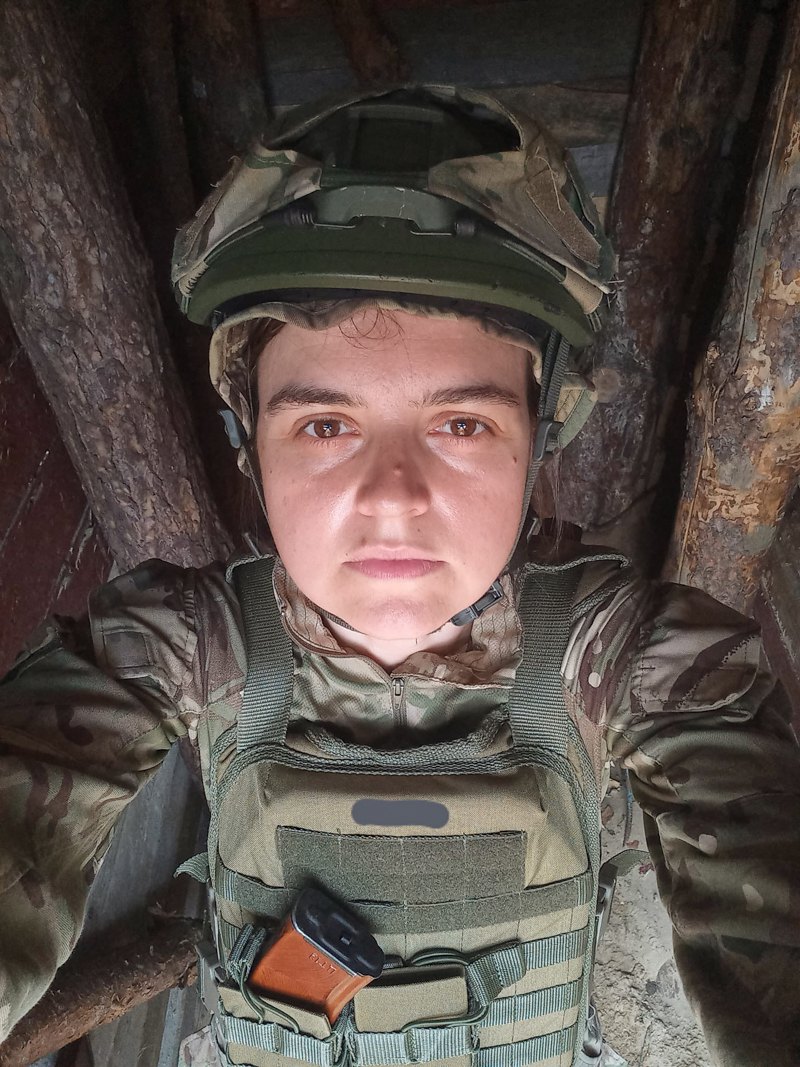
Olena Apchel
I will give an example with foreign instructors to then reflect this aspect of post-colonialism. When a specialist in our military conducts training, it is obvious that everything works on authority, on the ability to present the material, to hold the audience's attention. But as soon as a foreign trainer appears, everyone seems to pull themselves together a bit, listens more attentively, and goes to the bathroom or for a smoke break less often. This means that this inferiority complex works in such a way that it doesn't matter what this person says – attention is concentrated simply because they are speaking a foreign language and they are being translated. Of course, when we start talking about this among ourselves, everyone denies it, but transgenerational trauma leaves atavistic behavioral reflexes in subjugated peoples. And in the peoples that have subjugated, it works the opposite: if a person poorly masters their language or knows little about their culture, then such a person is listened to inattentively or ignored. A simple mechanism, it seems, but it is still reluctantly noticed by both sides.
I very often observed similar examples. When some unknown directors from Europe came to stage performances in Ukraine, more people attended such performances, and the media paid more attention to them. The performance could be of poor quality, uninteresting, but because it was staged by a foreigner, it was considered something that deserved more time, and doubts about its quality were rather explained by our "inability to watch contemporary art." This, obviously, applied to directors from Russia, Germany, France, Britain, and, obviously, less to directors from Greece or Slovenia, and almost not at all to directors from Kazakhstan or Georgia. And this, unfortunately, is not a paradox, but a very understandable, unspoken reality in which all post-colonial societies find themselves. But it also works in the opposite direction – even if society declares an internal decolonial policy.
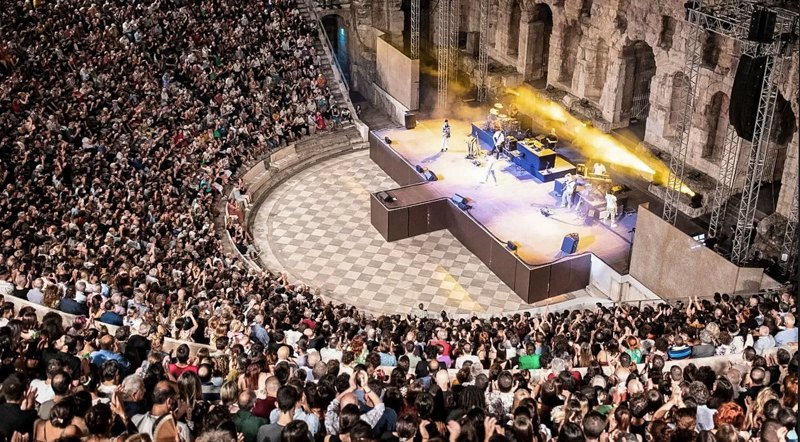
Athens Epidaurus Festival 2023
A wonderful example from last summer: at the Athens Epidaurus Festival, one of the discussions was dedicated to the modern interpretation of ancient texts, their interpretation, their understanding. And the most about this was said by guests from Britain and Germany (traditionally at international art festivals, the most is said by guests from Britain and Germany, if they are present). We sat in a small curatorial group of young people from Georgia, Ukraine, Finland, Albania, and tried to signal with brief comments that it would be incredibly interesting to hear the opinion of Greek artists about contemporary Greek theater, which continues to work with ancient texts, because that is exactly why we came here. We tried to hint to British and German colleagues that perhaps they would also be interested in the perspective of peripheral countries (represented by us) or to listen to a dialogue between Greek artists and artists from peripheral countries, which they probably do not often hear. And, as you understand, it is again not about ethnic affiliation, but rather about worldview identity. I was incredibly curious about what the Finnish specialist, the Georgian theater expert thinks about this; it was interesting in informal conversations to discover: Greeks do not know that Mariupol was once a completely Greek city, that there are Greek settlements, Greek schools in the eastern part of Ukraine, that my family from Bessarabia also has Greek roots and we have a lot in common, but this commonality had little chance to often meet in art due to the suppression of our self-sufficiency by empires.
I know and respect the decolonization path that European museums have started, but the physical presence in Athen’s Acropolis Museum the day after the discussion took away any desire I had to listen at all to what British or German specialists think about art. Of course, these are just temporary emotions, and we all strive to live in a balanced world where all voices are represented. But I do not consider emotions to be evil. They are part of an adequate living natural reaction to pain and injustice.
I couldn't calmly enter almost any local history museum on Museum Island in Berlin for a year and a half, where original stolen artifacts still lie. I just felt somehow awkward. I remember a similar feeling when back in 2010 I entered the Hermitage and saw hundreds of paintings and artifacts by Ukrainian artists. I asked the guide why they were here and not in Ukraine, and received the answer: "What a strange question, girl?".
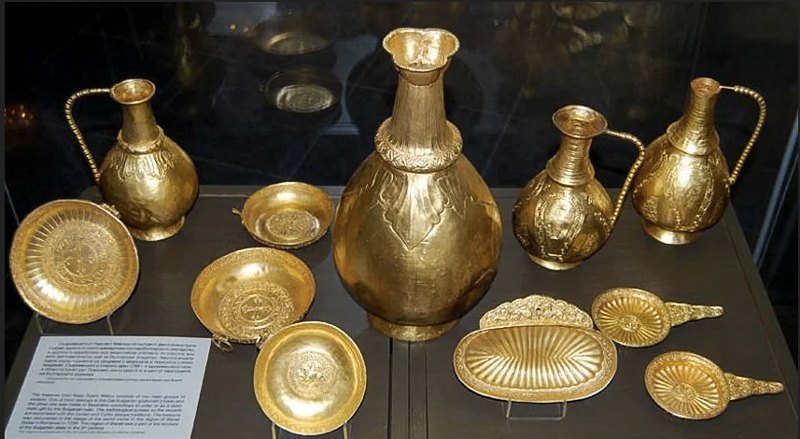
Jewelry from the Pereshchepyn treasure in the Hermitage. (This is the richest treasure found in Eastern Europe, it was discovered in 1912 near the village of Mala Pereshchepina, Poltava region, Novosanzharsky district)
And so we walked through the Athens Museum with our peripheral group of young people, silent, sometimes whispering to each other: "This is the poorest museum I have ever seen in my life", "It's a museum of forced emptiness". This museum was poorer even than the Ukrainian ones, because Ukrainian museums, like the Greek ones, had been plundered, including by the Vatican and the Germans, but mostly, obviously, by the Russians. But we still managed to return something, to restore something about our history – of course, until the occupation began 10 years ago. In the occupied territories, the Russians stole absolutely everything from our museums. Everything they couldn't steal – they burned and destroyed. There, in Athens, we all took turns asking our lady guide questions about where exactly the originals of this or that artifact are now. And each time, the lady guide lowered her eyes and, with a strained smile, calmly replied: "Well, unfortunately, we still don't know when exactly it will return to us, but there it is, in British Museum or in Antikensammlung Berlin, or in The Historical Archive of the Vatican Museums. How well I know the tension of every muscle in that smile on the lady guide's face, behind which lies restrained anger, resentment, rage, submission, defiance, confusion, emptiness, hope, hopelessness, self-control, and self-censorship. This is a bouquet of emotions that unfolds like fragrant spring lilac in the pause between swallowing saliva, to grind this transgenerational knot of injustice with a further response.
This bouquet of feelings arises every time in the pause before the answer to all the awkward questions about what is wrong with Dostoevsky and what is the fault of Tchaikovsky, who lived before Putin and Stalin, and in general, his family comes from a Ukrainian Cossack lineage. And you have to swallow, push that damned ball down your spine every time before you pull on a condescendingly submissive smile, start again and again to search in circles for words that explain the mechanism of the merciless Moloch of Russian propaganda, which uses art as a weapon at all times. It marks all territories with convenient labels for itself, tramples, tortures, and destroys all of them, the inconvenient and the uncomfortable. And this is not about the personality of the artist, but about how the empire has used him for its purposes. And for its purposes, Russia uses all artists, even those who think they are against the regime. But to realize this, too many movements are needed, one must acknowledge their ignorance, their false optics, and work a lot, a lot. Intellectual laziness is exactly what the empire relies on, always. That is why it loves to reward with orders and certificates, hold so-called dinners, gather large opera halls, conduct long and lavish meetings in European countries after Russian premieres, including those infamous 'good' ones, and drink prosecco, definitely drink prosecco during the breaks, prosecco and now also Fritz-Kola.
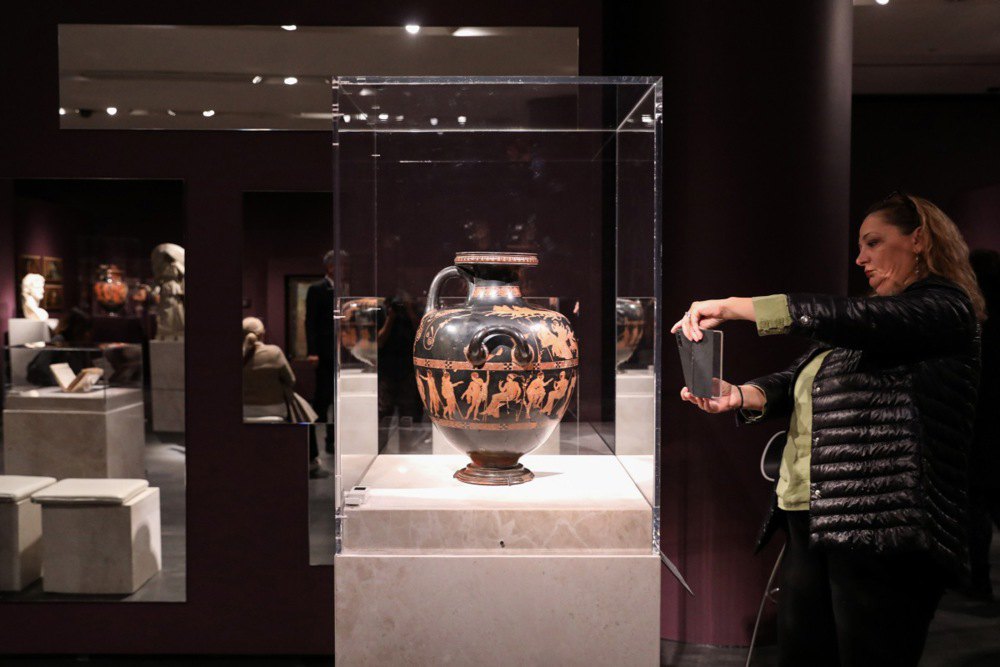
'In the Acropolis Museum in Athens, December 5, 2023.'
Russian narratives literally infect everything around us. The complex of inferiority can still be easily noticed when previously colonized societies still have an atavistic echo of listening to the "masters", even if they say not very smart things. But it works the other way too. The former "masters" (those with imperial experience, including Germany) think they think best, know the most, have something to say, and can take up more space. To occupy "rightfully" – well, because there really is this intellectual continuity, isn't there? And as long as the former colonizer-masters do not realize their own responsibility for the decades-long war of Russia against Ukraine and do not take the trouble to step aside – the inequality of this discussion will continue.
So, the most important thing is weapons to protect people from the Russians, but it is also long overdue to make space for the unheard. Both the Germans and the liberal Russians who have flooded Berlin need to understand that they must make room, to free space for the voices of Kazakh, Georgian, Crimean Tatar, Ichkerian, Moldovan, Ukrainian, and Lithuanian intellectuals, who will describe their perspective, a new and unexpected perspective for Europe of the oppressed and those who are fighting against the empire that calls itself a federation. But right now, the focus is on the largest war in Europe, which is tearing apart Ukrainian land and destroying the citizens of Ukraine, while the whole world watches online.
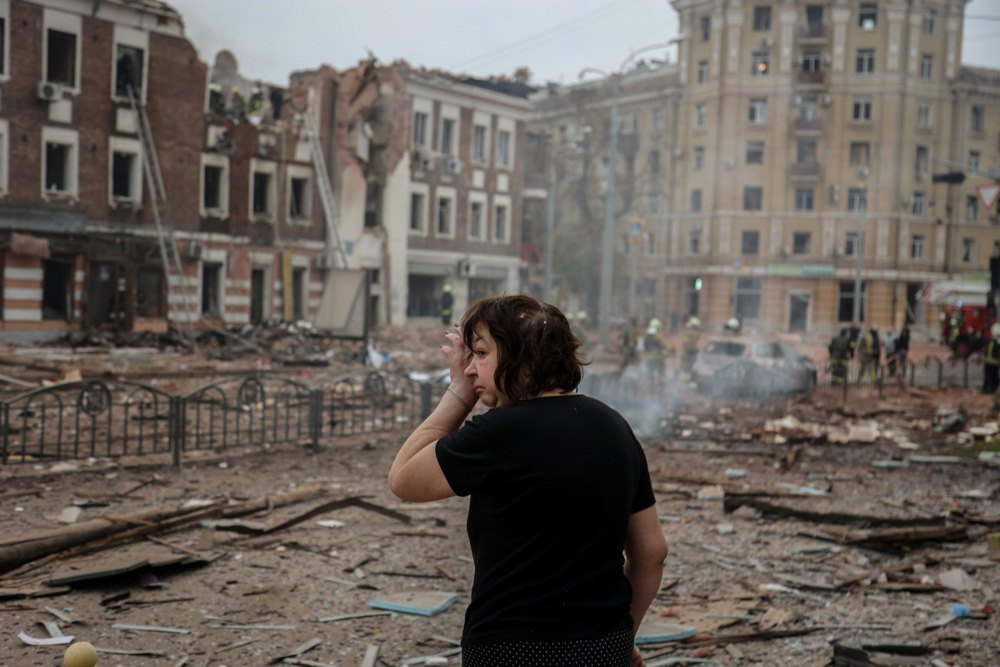
Woman at the site of destruction after the shelling of Kharkiv.
Listen to these voices carefully, not from the position of a tired "nervously unstable traumatized refugee." We must learn to see dignified people who were able to say "no" to the abuser and the terrorist. Because if this war was allowed, if so much evil happened before the eyes of Europeans in the first 8 years of the war (which was not called a war, but cowardly a "conflict") – it means that the accustomed narratives do not work. If they do not work, what needs to be done? They need to be reviewed. To review them, one must distance oneself. To distance oneself, one must understand where I am distancing myself from, what I am distancing myself from. I am distancing myself from my beliefs. If I distance myself from my beliefs, I free up space and am ready to listen, ready to acknowledge that some of my narratives are irrelevant, inadequate, then only then what the other side will say will have a chance for subjectivity.
But until this happens, writing such texts may not make sense. Because mostly such texts are read by those who are ready to behave like an older father towards a child who is crying from a scraped knee, rather than as a partner in a discussion around the narrative, preemptively giving the partner the right to speak, the right to know more, to be above and wiser, realizing that their own narratives may be irrelevant, that I cannot know everything.
There should be some warm paragraph here about how not everything is so bad, and in fact, there are many adequate spaces for equal discussion. But at this moment, the electricity was turned off again because the Russians destroyed almost all civilian energy in the largest country in Europe. And in the dark, you find better understanding with those who speak directly, are not afraid to admit mistakes, and are ready to confront genocidal tyranny. And writing a good text in the dark, on an almost drained phone is not desirable. And this is not about emotional trauma, but about real reality.
We live in a foggy plasma of daily unprecedented cruelty, where the horizon is so low that seeing the prospect of the future for a week is already a privilege. I would just like to wish us to become more sensitive and honest – it irritates the empires. Although this advice is only effective if you are ready to face the fierce beast, including – within yourself.
'***'
Currently, Olena Apchel serves in the UAV unit of the 4th Operational Brigade of the National Guard of Ukraine 'Rubizh'. You can join the collection for Olena's unit here.